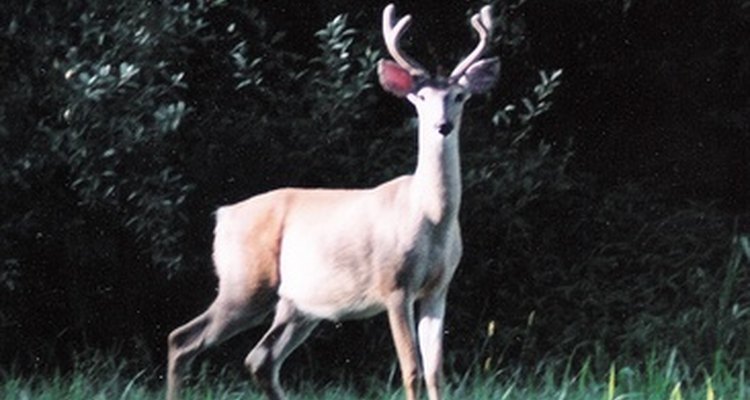
Deer meat can be crafted into a variety of cuts and meat products, including steak and sausages. Though it has the consistency of beef, deer meat is healthier than beef, according to Andrew Weil, M.D. Due to its nature as wild game meat, specific health problems related to field dressing and the health of the deer itself can impact the safety of consuming venison.
Field Contamination
Bacteria contamination may occur in the field after a deer has been shot, depending on how it's handled, according to Jeff Sindelar, a meat specialist at the University of Wisconsin. During the cleaning of the deer carcass, a hunter may puncture the deer's bladder, stomach and intestines, which can spill potentially dangerous bacteria onto the meat. An improperly cooled or stored deer carcass may also harbor various kinds of bacteria that develop on meat that's stayed warm for too long.
Chronic Wasting Disease
Some deer are afflicted with chronic wasting disease (CWD), which affects the deer's nervous system and brain. Symptoms include staggering, drooling or an emaciated appearance. The U.S. Centers for Disease Control and Prevention advises individuals to avoid consuming meat from animals that possess these symptoms. The consumption of specific organs should also be avoided regardless of the deer's appearance, according to Sindelar at the University of Wisconsin. This includes the spleen, brain, eyes, lymph nodes and spinal cord.
Deer Tuberculosis
Humans can get tuberculosis by handling and eating deer that carry this disease, according to Dr. David Wolfgang, field studies director and veterinarian at Penn State University. Symptoms include bubble-like lesions on the meat.
Lead
Lead from bullet fragments can contaminate venison. Lead is especially dangerous for children, where it can cause permanent damage during a child's growth stages. The U.S. Centers for Disease Control and Prevention recommends throwing away any part of the deer that may have been hit by bullets. For example, the heart should not be consumed if the deer was killed by a shot to the organ.
Related Articles
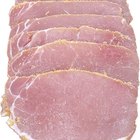
How Do I Tell If Pork Has Turned Bad?

How to Soak Deer Meat in Baking Soda

How to Make a Blackbuck Antelope Roast
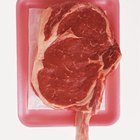
Can You Cook Meat Gone Bad?

How to Make Jalapeno Beef Jerky

How Long Does It Take for Ground Beef ...

How to Cook Muskrat
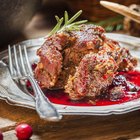
Nutritional Facts of Deer Meat
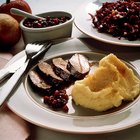
How to Make a Venison Rub

What is a Medallion Cut of Meat?
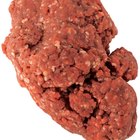
Dangers of Spoiled Ground Beef

How to Eat Alligator

How Long Does It Take for Pork to Spoil ...
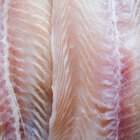
How to Fillet a Black Cod Fish

How to Cook the Neck of a Deer
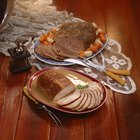
How to Tell the Grain of Meats

How to Cook Barbecue Deer in the Slow ...
How to Prepare & Cook Wild Pheasant
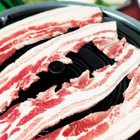
How to Know if Bacon Has Gone Bad

How to Cook Corned Silverside in a Slow ...
References
- "Deer Hunting 101: The Beginner's Guide to Deer Hunting"; David Pruet; 2006
- University of Wisconsin: Handling Venison Safely
- Penn State University: Deer Diseases & Public Health
- U.S. Centers for Disease Control & Prevention: Venison and Lead
- Dr. Weil: Is Deer Meat Dangerous?
Resources
Writer Bio
Joshua Duvauchelle is a certified personal trainer and health journalist, relationships expert and gardening specialist. His articles and advice have appeared in dozens of magazines, including exercise workouts in Shape, relationship guides for Alive and lifestyle tips for Lifehacker. In his spare time, he enjoys yoga and urban patio gardening.
Photo Credits
deer image by Joan Stanton from Fotolia.com